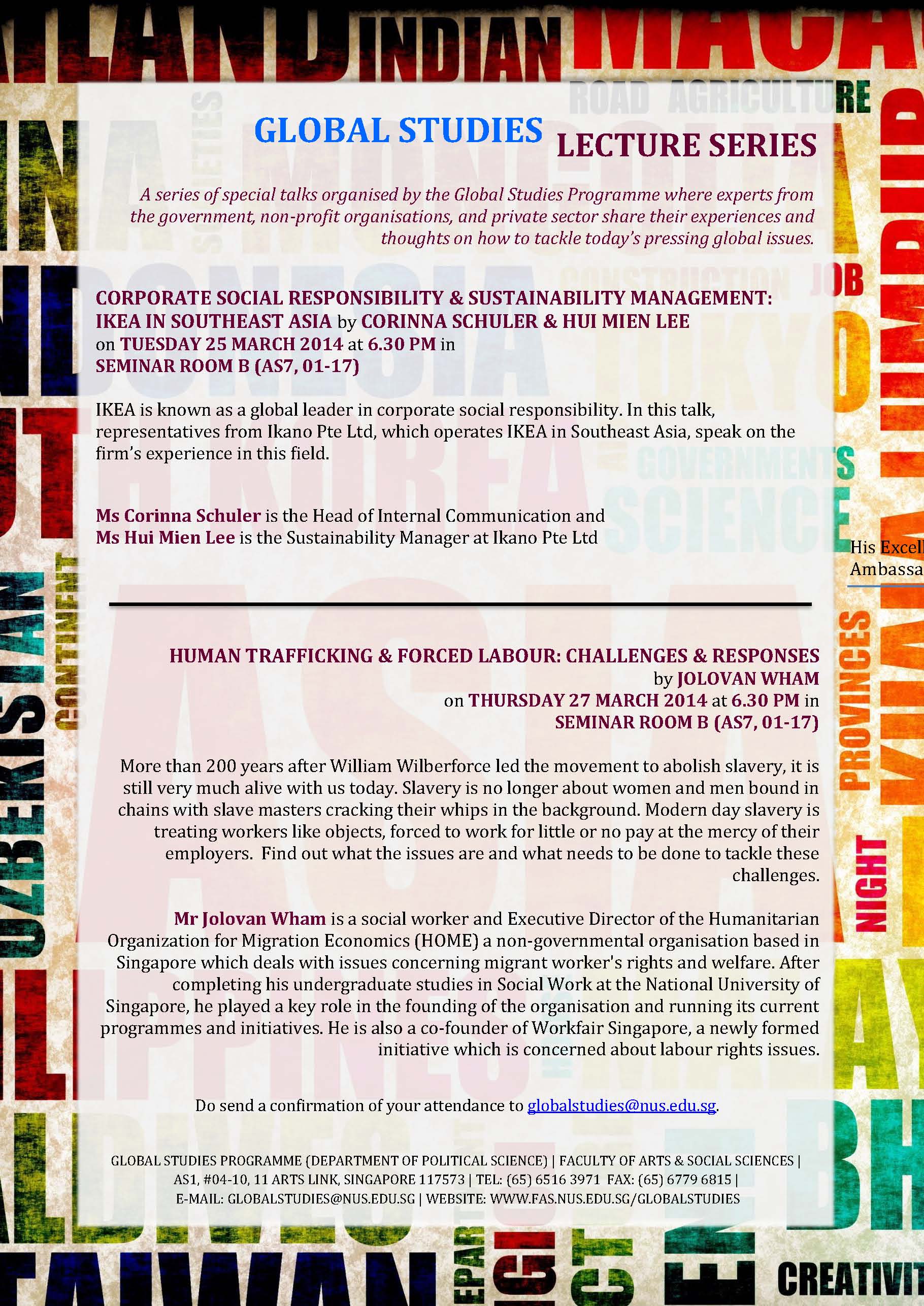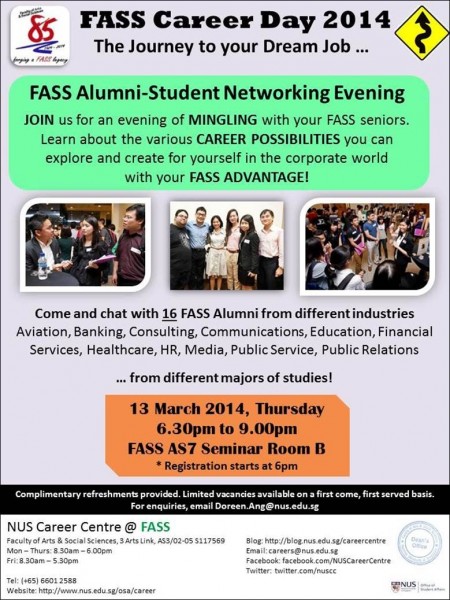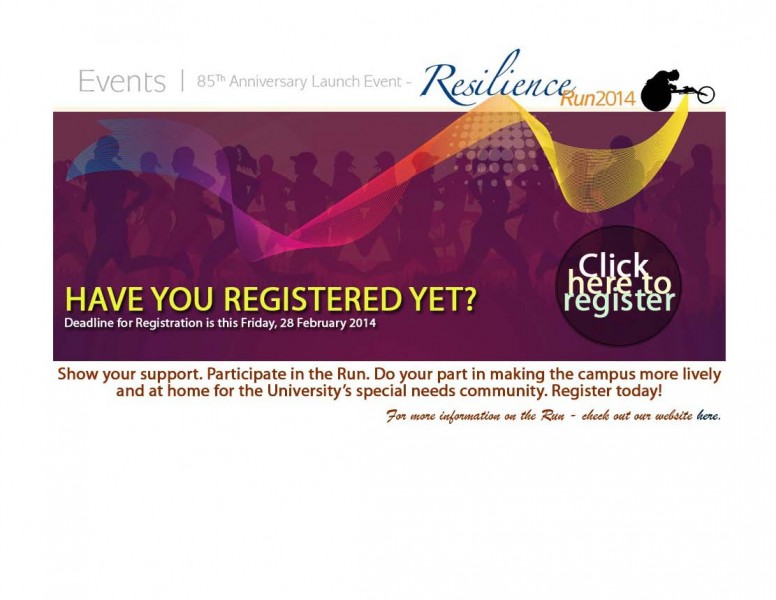Learning how to make facts live: a reflection on teaching challenges
Anna Filippova, Department of Communications and New Media
“The main part of intellectual education is not the acquisition of facts but learning how to make facts live.
Oliver Wendell Holmes
Enough time has passed for me to be able to admit that I was completely terrified when I walked into my first tutorial. My mouth was dry, my hands shook when I put the attendance sheet down and pulled out my materials. Will I remember to tell them everything they need to know this week? Will we have time to talk through all the questions?
The class went smoothly. Everyone’s attendance and participation was recorded. All announcements and introductions were made. The answers were discussed. I walked out feeling like I’d done reasonably well. It was only later that I began to understand this wasn’t going to be good enough.
One day, at the end of class, I got a question I couldn’t immediately answer. We had been discussing social media phenomena, and like all good questions, it started with a “why”. Why is this so? Why indeed?
I don’t know.
I don’t know, but let’s figure it out together.
I read through some academic papers. It was a very good question, and a surprisingly small amount of research was done in the area.
“I don’t know,” I told my student as we discussed the extra material I’ve read. “And many very smart people haven’t figured it out completely yet. Why don’t you give it a go in Honours year?”
I’ve grown to believe that learning, and by extension teaching, is not just about getting through all the facts. Neither is it about having the answer all the time. It is about discovering the tools, some of which are already inside us, that allow us to examine the world around us, form opinions, ask questions and continue to add facts to the body of human knowledge. This for me has been the biggest challenge in teaching so far – supporting this process of self-discovery. How do you give an answer without giving the answer away?
I am sure that everyone who has had the privilege to teach a class has a different way to address this particular challenge. I am equally sure that this is a constantly evolving process. At the moment, context is my tool of choice.
Context helps to answers those difficult “why” questions, like “Why is this important?”. Context highlights how material is relevant to the broader themes of the module. It makes connections to current and familiar events, and helps to understand not only how but why a tool is used.
Context is more facts, but facts that provide perspective.
We live in a time of unique opportunity when facts are so readily available, they may easily overwhelm us. Our real challenge, of course, is to navigate the wealth of information available, and I believe this to be an increasingly important part of teacher-student interactions. Rather than being the keepers and disseminators of knowledge, we are increasingly learning to facilitate the individual knowledge gathering processes of our students.
Now I actively encourage my students to ask me ‘why’ more, and though I may not always have an answer, I try to provide more background and a broader overview that might in turn stimulate more questions. It is my hope that this will contribute not only to learning the facts in our course material, but also in helping the facts come alive and stay with our students beyond their university experience.
And together with my students every semester, I too, am continuing to learn.
Reflections on what makes an exemplary educator
Galvez Victoria Francesca, Department of Sociology
My three years of postgraduate education in the National University of Singapore have been instrumental to my growth and wisdom as an educator. I have had the fortune of observing a range of teachers and teaching styles or methods. In addition, I have had the privilege of tutoring undergraduates of various academic abilities, disciplines, and interests. These three years of ‘participant observation’ – a term that qualitative researchers deploy to refer to an in-depth observation, immersion, and participation in the social milieu of their research subjects – have yielded numerous insights into the teaching profession. They have also enabled me to craft my teaching philosophy, which I will lay out below.
I strongly advocate that a competent educator is an all-rounded individual. Ideally, he should be extremely knowledgeable in his field of study, and is able to work well with his lecturer or module coordinator. Moreover, an effective teacher should be able to deliver a lesson in an effective manner, and cultivate in his students a thirst for knowledge that transcends classroom learning.
An excellent tutor is usually well-versed in his field of study. When I teach a particular topic, I endeavour to acquaint myself with both the foundational and seminal works and authors in the area of concern. Furthermore, I keep abreast of the changes and overall trends in the field. What are the gaps in the current body of research? What are the suggested trajectories for future research? What does the latest research reveal about a given social phenomenon? Thus, I consider the preceding questions to check that my content mastery skills are in tip-top condition.
It is also crucial that I work closely with the lecturer or module coordinator. The lecturer may supplement and build on my content knowledge of a subject. He may consult me when designing the course too. More vitally, I keep in tight contact with the lecturer in order to tease out the overall approach that he employs in the module. What are the overarching messages and learning points that the lecturer desires to convey in the course? What does a bird’s eye view of the module look like, and how do individual topics fit into this aerial orientation?
After a teacher has mastered the relevant content and consulted the lecturer, he needs to seriously contemplate how to convey this stock of knowledge to his students. Lesson delivery techniques are paramount here, and they refer to the skills and process of preparing, breaking down, and delivering a lesson. I frequently ask myself if my lesson has been taught in a clear and succinct manner. Moreover, has my tutorial been ‘student-centric’? Have I catered to and fulfilled my students’ learning wants and needs? Are my students able to grasp my points, and proceed to question, challenge, and embellish them? Also, has the lesson been delivered in an engaging, interactive, and (intellectually) conducive environment? Have I been able to glean pearls of wisdom from my students, even as they learn from me?
Finally, I contend that an exceptional teacher sparks an interest in his students that goes beyond classroom learning. During the process of carving out my role as an educator, I discovered that I have grown much in my academic imagination and my sense of empathy. In a similar vein, I strive to ignite and stretch my students’ sociological imagination and curiosity in their social world and life. I also hope to impart skills – sharp critical thinking, writing, and speaking skills – that serve the students well in their university education. Ultimately, I labour to instil in my students a sense of understanding and appreciation for diverse social groups, issues, and problems. I too, wish to inculcate in my students, a desire to effect social change in their own social milieu. Such change need not be revolutionary or groundbreaking; it suffices that my students seek to alter their world in small but substantive and meaningful ways.






